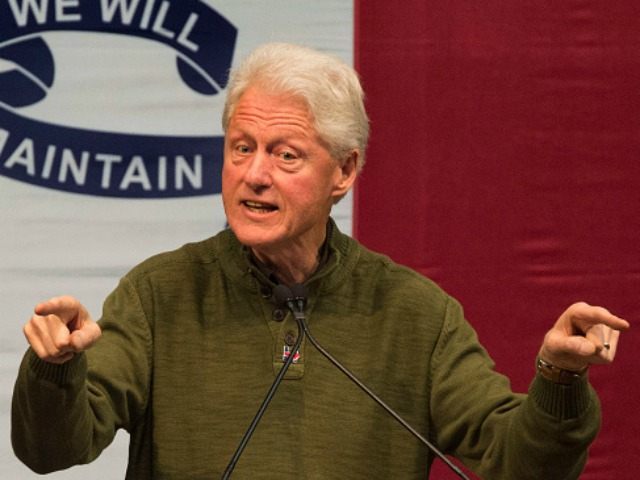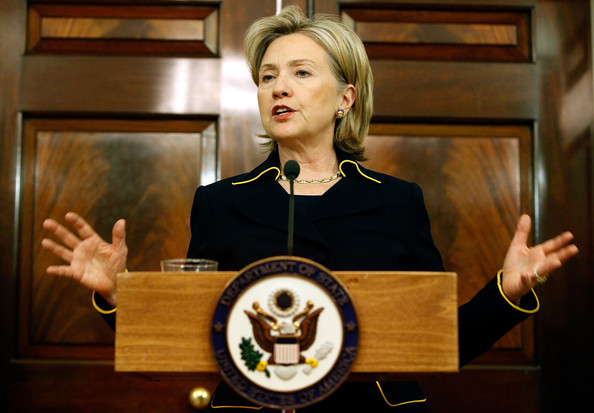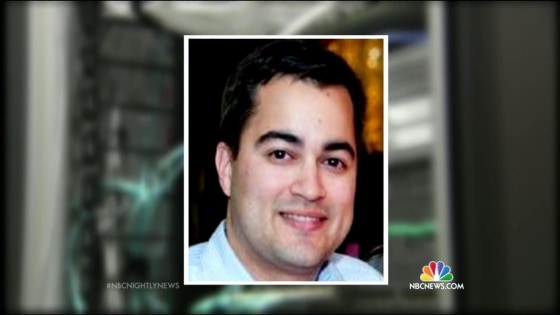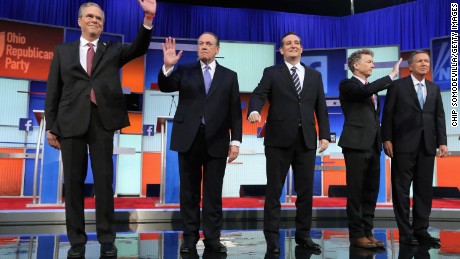Secretary of State Hillary Clinton had two chief rivals in the corridors of power–Vice President Joseph Biden and then-Ambassador to the U.N. Susan E. Rice. Each outweighed her in credibility, dependability, and sincerity. Biden posed by far the biggest threat as potential presidential candidate. Rice was being mentioned as next Secretary of State.
Two of the first emails Mrs. Clinton issued before dawn on September 11, 2012, reflected the influence of Biden and Rice.
At 4:39 a.m., Clinton sent her first email, asking to see Stella O’Leary, founder of Irish American Democrats, who had written through channels praising the Clintons’ work with Ireland. O’Leary referenced a meeting with Clinton that week scheduled for Martin McGuinness, Deputy First Minister of Northern Ireland. Back on St. Patrick’s Day, 2012, McGuinness had met with President Obama and Vice President Biden. In the ongoing effort to maintain ties with Irish Americans, Clinton needed to catch up. Events later that day–the tragic attacks in Benghazi, Libya–altered the timetable. Clinton met with McGuinness in October.
Pre-dawn on September 11, by 5:15 a.m. Clinton had forwarded eight articles, previously emailed to her. They went to “Russorv@state.gov” (Robert V. Russo), with the request, “Pls print.” (First was a blog post by Paul Krugman at the New York Times, forwarded by Clinton at 4:44 a.m.)
At 4:57 a.m., Clinton forwarded a Foreign Policy article titled “The Point Guard,” by James Traub.
The ‘point guard’ was Susan Rice. The article’s sub-heading read, “Susan Rice calls the plays for Barack Obama at the United Nations. Could she lead his foreign-policy team next? Should she?”
In hindsight, the Traub article seems to have had impact. The piece focused largely on Libya–and on Susan Rice. While administration policy and Rice get mixed marks, the piece nevertheless devotes mega-watt attention to Rice (see at link). Her impressive educational credentials, powerful life story, and phenomenal work ethic are forcefully highlighted.
Of particular interest:
In the entertaining parlor game of “Who would be secretary of state in a hypothetical Obama second term?” Rice is now considered the leader, or perhaps tied with Donilon, though questions about his possible role in the recent disclosure of sensitive national security information to the New York Times could threaten his confirmability. (Handicappers now place both in front of Sen. John Kerry.) It’s unclear that she’d be good at a job like that, though; her smile may be just a trifle too forced, her patience a bit too thin. A State Department official who has known her since the Clinton days says that though Rice is hard-driving, diligent, and effective, “There is a disconnect between that and wisdom.” The president, a shrewd judge of character, may know this about her, but the fact that he trusts her may matter more. Susan Rice is not to be denied. She has never faltered along the steep upward trajectory of her career. Some high-powered women have dropped out of the administration to tend to their families, and Rice says she is sympathetic to their plight; she just doesn’t share it. At one point I asked Rice whether she had ever experienced a serious failure. She thought about it. No, she hadn’t. “Some have tried to take me on,” she murmured. Presumably, they lived to regret it.
Traub also gave Rice forceful credit for her loyalty, her passion, her pragmatism, and her blunt honesty. He also noted that, after working in President Clinton’s administration, Rice chose to support Barack Obama over Hillary Clinton. One hesitates to be a mind reader, but it is hard to imagine Secretary of State Clinton shrugging that off. For one thing, four articles Clinton next forwarded to Russo for printing were relatively laudatory as they pertained to her.* For another, Clinton requested that the Traub piece, like the others, be printed.

“Pls print.”
“Pls print” —
Side note: While Clinton as we know set up a private email server at home, she seems not to have set up a printer. Or if she did, she did not use it much. Was her “Pls print” request just a way to save paper and ink cartridges on the home front? Were the State printers that much better than the State email servers?
Or can one assume that when Secretary of State Clinton asked a State employee to use Department resources to print an item, she considered that document to be State Department business?
For perspective, the searchable SecState Clinton emails are posted online here–30,322 emails. Clinton’s frequent “Pls print” request turns up more than 3,400 times. Assuming that many of the results are duplicates or email chains, that’s still hundreds of pages of printing requests submitted to State. (Once again, as when they exited the White House and then had to return White House furniture to the public, the Clintons look like a couple of cheese-parers. But that’s another story.)
For all searchable State Department emails released and not just Clinton emails, go here. In this archive, 13,850 emails contain the private email address “hrod17@clintonemail.com.” Of these in turn, Clinton sent more than 8,200. (Emails received by Clinton begin only about page 413 out of 693–at 20 emails per page.) Again, many are duplicates and/or parts of email chains. But again, the total is hundreds of emails. Probably few people have read all of them. A quick check reveals that many emails sent by Secretary of State Clinton have parts redacted. In other words, either they contain private email addresses or other personal information about non-government employees, or they contain material now deemed classified. As written earlier, one consequence of Clinton’s private email server was to comingle State and off-duty communications.
Back to the early morning hours of September 11, 2012 —
At 5:14 a.m., Clinton replied to Melanne Verveer, who had fulsomely praised an appearance by Bill Clinton. From Verveer (September 6):
H I’m in the business lounge at Dubai airport en route to Dhaka watching your husband’s extraordinary speech and surrounded by countless foreigners all cheering him on. Only he would elicit that kind of reaction at home and abroad! I think it was his most brilliant performance yet, all bias aside. [NAME REDACTED] emailed me in the middle of it to say that you have to run for president so she can work for you!!!
Clinton’s reply:
That must have been a surreal moment–so far from home but so present. He did a great job for the President, the party and the country. Come see me when you have time this week.
At 5:22 a.m., Clinton emailed Cheryl Mills, simultaneously at both her home and work addresses. Subject line: “Need to be sure we talk today.” Message: “What time works for you?” At 5:35 a.m. she emailed Mills again, with the same subject heading and asking “How about 4:30?” At 5:41 a.m., she again emailed Mills with the “need to be sure we talk” and an additional request, “Also, can I call you around 7:30 this morning?” (Mills replied early that she was coming in.)
Clinton’s emails to Mills look increasingly urgent if not agitated. They had nothing to do with Benghazi, where the attacks had not erupted. However, the article on Susan Rice does seem to have inspired an action regarding Libya. Clinton’s next email went to Huma Abedin at 5:50 a.m.:
Request:
Can you get us a copy of Bernard Henri-Levi’s film about Libya? I think Harvey made it and showed it at Cannes last spring.
This would presumably be the documentary about the Libyan war by Bernard Henri-Levy. Other writers have addressed this item.
Clinton then turned to more respectable daily State business, at 5:15 forwarding a CNN article to Russo titled “Chinese media make inroads into Africa,” with “Pls print.” A minute later, she replied to the sender, “I don’t know why we can’t get the Congress (or anyone else in Washington) to care about this.”
Incidentally, the tone and diction of this comment are very unlike Clinton–unusually feeling and colorful, in contrast to the banality of most of her State emails. Either she got hold of a genuine issue for American concerns, or she suspected that Chinese media in Africa would not likely feature her, or both.
At 7:30 a.m., Clinton emailed four people in State with the subject heading “Xi Xinping‘s letter to me.” Message: “I’d like to respond as quickly as possible. Pls get me a draft today. Thx.”
At 8:38 a.m., she sent a message headed “Schedule”:
Pls reach out to schedule the following: Terre Blair–mtg in NY or DC Maggie Williams–she prefers dinner in NY John Kerry–he asked to see me when I saw him last night. Maybe mtg after work– for drinks or dinner? Not sure what’s best.
A few other emails on State matters were followed by a friendly reply to Capricia Marshall at 6:57 p.m.–“Are you still here in office?” Marshall had emailed Clinton at 5:45 that “Jake was simply amazing”– “He was our featured speaker at our State of the Administration on Monday. He really wowed the Ambassadors as he has such a command of your accomplishments. Have a few thoughts on this.”
By coincidence, Susan E. Rice had received word of the Benghazi attacks a few minutes earlier, in a message not yet transmitted to SecState:
From: Pelofsky, Eric 3 Sent: Tuesday, September 11, 2012 6:42 PM To: Rice, Susan E (USUN); Singh, Priya (USUN); Ryu, Rexon Y; Oat-Judge, Siobhan Cc: DiCarlo, Rosemary A (USUN) Subject: RE: URGENT – Benghazi I should have mentioned that NEA conveyed to me that all of this is closehold. SBU
From: Pelofsky, Eric 3 Sent: Tuesday, September 11, 2012 6:41 PM To: Rice, Susan E (USUN); Singh, Priya (USUN); Ryu, Rexon Y; Oat-Judge, Siobhan Cc: DiCarlo, Rosemary A (USUN) Subject: URGENT – Benghazi As reported, the Benghazi compound came under attack and it took a bit of time for the “Annex” colleagues and Libyan February 17 Brigade to secure it. One of our colleagues was killed — IMO.Sean Smith. Amb. Chris Stevens, who was visiting Benghazi this week, is missing. U.S. and Libyan colleagues . . .
For future reference, emails released show Clinton sending only 29 emails, including a few duplicates, on September 11, 2012. Relatively few emails fore-grounded State concerns over Clinton’s own. Fewer still had anything to do with Benghazi. Word of the attacks came only late in the day.
Only at 8:51 p.m. did Clinton’s emails about Benghazi begin, with the heading “I’m in my office,” sent to Diane Reynolds (i.e. Chelsea Clinton):
Because of attacks on our embassy in Cairo and our office in Benghazi so email when you can talk.
At the time, with incomplete information, she may have guessed that Cairo was the worse problem. At 11:12 p.m., Clinton emailed her daughter again with the heading “I’m in my office”:
Two of our officers were killed in Benghazi by an Al Queda-like group: The Ambassador, whom I handpicked and a young communications officer on temporary duty w a wife and two young children. Very hard day and I fear more of the same tomorrow. Let’s try again later.

U.S. Consulate, Benghazi
“Chris Smith” —
After word of the Benghazi attacks, Clinton sent two emails headed “Chris Smith.” Notwithstanding her poignant “I handpicked” Ambassador Christopher Stevens, she seems to have conflated his name with that of Foreign Service officer Sean Smith, who like Stevens was killed in the first attack. CIA contractors Tyrone Woods and Glen Doherty were killed in the second attack.
The first went out at 11:38 p.m. It contained a rather weighty question, asking input:
11:38 p.m. “Chris Smith.” “From: H <hrod17@clintonemail.com>Sent: Tuesday, September 11, 2012 11:38 PM To: ‘sullivanjj@state.gov’; ‘millscd@state.gov’; ‘nulandvj@state.gov’ Subject: Chris Smith
Cheryl told me the Libyans confirmed his death. Should we announce tonight or wait until morning?
The second went at 11:40 p.m., with the brief message–“Ok.”–in response to Mills’ reply: “We are awaiting formal confirmation from our team. We are drafting a statement while we wait.”
At some point, exact time and author not given, a “Statement on the attack in Benghazi” was issued. The initial email is archived with several others issued over the next few days–with progressively more personal statements over Clinton’s name, about the four Americans killed, some repeating the personal asseveration that she had handpicked Ambassador Stevens.
The take-away here is hard and painful. First, for a sitting cabinet member to send emails by private email server at home was almost pathologically stupid. Despite GOP bloviating, there are genuine security issues involved. Add in the optics of cost-saving by sending your emails to be printed at government expense, and the set-up doesn’t get any smarter or sunnier. Add in the banal light in which they present the Secretary of State herself.
Second, while a Secretary of State might not be determined responsible for security concerns, it should be a given that s/he show concern as a matter of character. Mrs. Clinton’s emails are devoid of that concern. They show–and again, these are the emails written by Clinton herself–a public figure self-engrossed, self-advancing, and relentlessly concerned about image. Some State Department personnel seem to have concerted with her. At 9:46 p.m, after the attacks had commenced, then U.S. Ambassador to Russia Michael McFaul sent this email, subject line “Help”:
Clintn with Putin was on front page of Kommersant yesterday. Jake Sullivan, head of policy planning, wants to get a copy. Could you help me find it electronically ? Thanks mike
(McFaul resigned as ambassador in 2014.)
Paradoxically, the rigid concern with image leads to a gargantuan tin ear. Setting aside if one could the deeper issue of character, this is the issue for Mrs. Clinton as a campaigner. The problem with her hoarse yelling is not that she is a woman, but that she comes across as inauthentic. People can yell in passion, but when Hillary Clinton yells, it’s not from passion. She is trying to sound like a genuine dyed-in-the-wool pol on the hustings. Channeling Bill Clinton. Channeling Bernie Sanders. But it’s not who she is. So she always comes across as trying to seem — something. This is not a feminist issue. True it is that any woman in public life will be on the receiving end of misogynistic attacks. Equally true is that the Clintons are not the messengers for that message.
*5:01 a.m. forward “The Comeback Vegan,” by Maureen Dowd; 5:06 a.m. forward “A Touchy Relationship,” a NYTimes editorial; 5:10 a.m. forward “Faithfully Democratic,” a Washington Post blog post; and 5:15 a.m. forward “The Two Clinton Legacies that Obama Should Continue,” from The Hill.


















